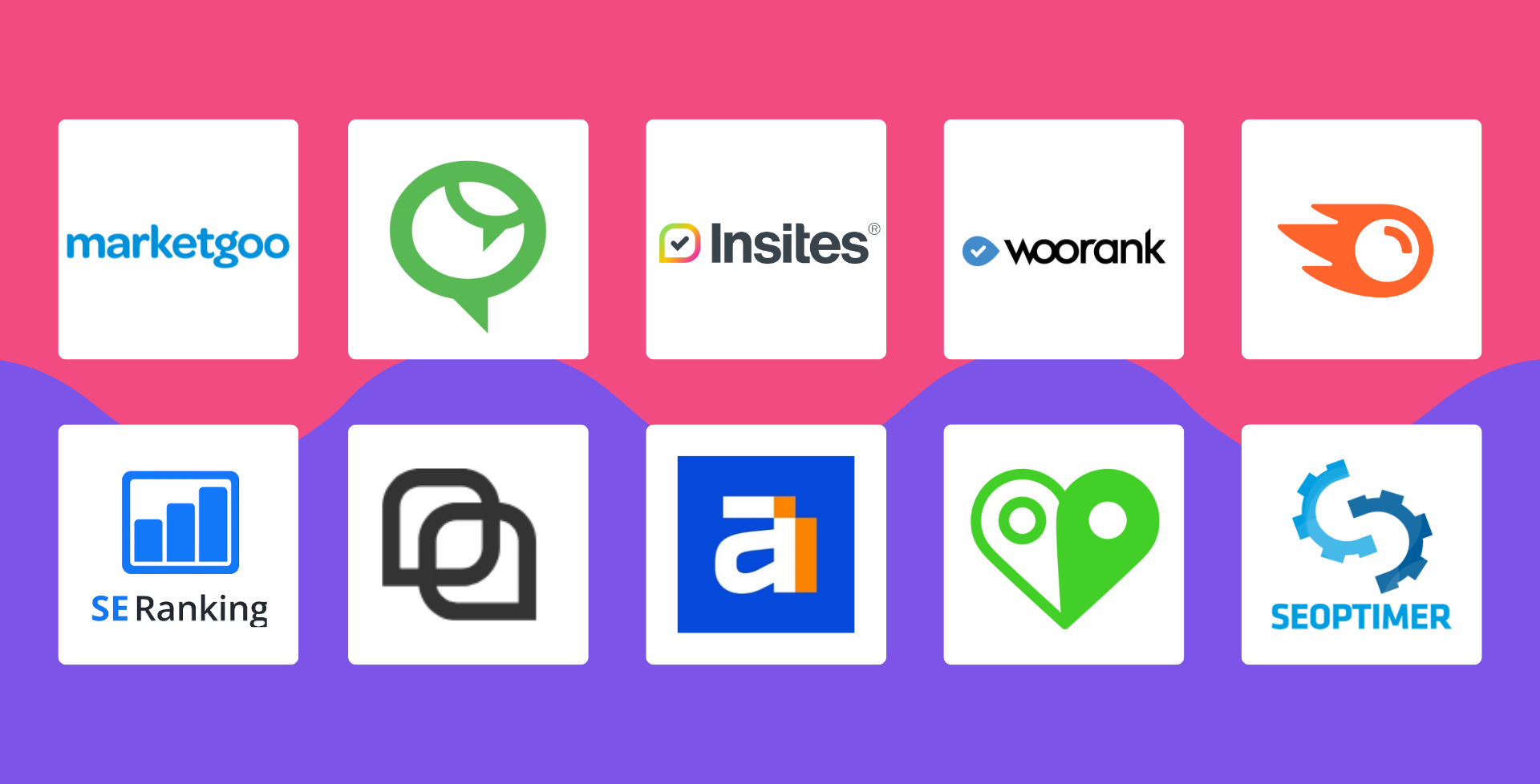Location, Location, Location: A Deep Dive into Local SEO Best Practices – Pt 2
Sharlotte Briscoe • February 21, 2024
Welcome back for part two! In our last post we explored 4 of the key aspects of mastering Local SEO for your clients, why they’re important and the impact they have on your clients business success.
- Optimising Google Business Profile Listings
- Local Keyword Research and Implementation
- Localised Content Strategy
- NAP Consistency Across the Web
This week we’re diving into the following points and the actions you can take, to make sure your agency is smashing local SEO for your SMB’s.
- Local Link Building Strategies
- Mobile Optimisation for Local Searches
- Generating Local Reviews and Reputation Management
- On-Page SEO Optimisation
Local Link-Building Strategies
Leverage local relationships
Encourage your client to utilise the local businesses to their advantage by collaborating with them to exchange backlinks, co-host events, or swap features on each other’s websites. By creating relationships with businesses in the area, their visibility will increase alongside doing their bit to support fellow SMB’s – a win-win if you ask us!
Get some guest blogs, testimonials or dedicated pages to feature on both business websites. Blog posts are a great way to reach a new audience and provide them with value before you’ve even been introduced.
Furthermore, reviews and testimonials that highlight successful collaborations serve as social proof and build trust with new and potential customers. Making the most out of the businesses your clients have around them, will yield significant results and nurture meaningful connections within the wider community.
Utilising local directories and citations
Listing your client’s business on local directories and citations sources is basic SEO stuff and as an agency that is experienced in it, we’re sure you’re very familiar with why it’s crucial for businesses aiming to increase their local visibility. But in case you need a reminder:
Local listing directories
Local listing directories operate within a specific geographic location or area. They act as the digital version of traditional phonebooks. They usually link back to these local businesses and are commonly used by online shoppers who are searching for local products and services. By listing your client’s SMB in these directories you increase the chances of them appearing in search engine results when people search for said products and services in their area.
Citations
On the other side of the coin, citations refer to SMB’s NAP details (Name, Address and Phone number) on external websites and don’t necessarily include a backlink to the website. They can act as a co-sign to search engines about the credibility of the business, especially when these details are consistent across the web.
Mobile Optimisation for Local Searches
Mobile friendly sites
Implementing mobile responsiveness is crucial for businesses to provide a seamless and aesthetically pleasing user experience across different devices. By ensuring your client’s website is mobile-friendly, you’ll increase user engagement and conversions, reduce bounce rates and boost overall satisfaction.
In addition to that, it contributes to their search engine rankings too. Search engines like Google prioritises user experience as one of the main factors in determining your client’s website rankings and if it is lacking in a superb user experience – the rankings will tank!
Ensure that there are no barriers to your client’s business popping up on the first page of Google by covering the basics of their website build.
Optimising for voice search for Local SEO
Optimising websites for voice search is becoming more and more important with the exponential increase of voice search use as our houses are filled with voice-activated devices and virtual assistants like Siri, Google Assistant and Amazon Alexa.
As more online shoppers turn to voice search to find out information, businesses must move with the times and optimise their websites for voice search.
And how do you do this?
You must understand and cater to the quirks and nuances of natural language queries. NLQ’s tend to be more conversational and longer in length compared to searches that are typed out. Using phrases that mirror how people speak and long-tail keyword in website content will help your clients business appear in voice search results. The long tail keywords would usually include location specific details, making them ideal to boost visibility in the local area.
Local Reviews and Reputation
Encouraging satisfied customers to leave review
If you’re a regular reader then we’re sure by now that you’ve seen us bang on about just how much power reviews hold for a businesses reputation. I’m sure your SMB clients know this but hammering home how important it is to ask for reviews is key in the quest for top tier Local search rankings and reputation.
One effective strategy for clawing in reviews is to implement email follow-up campaigns, where businesses reach out to customers shortly after their purchase or interaction. These emails include expressing gratitude for the custom and kindly (or cheekily, depending on your strategy) requesting a review. Custom follow up emails will give customers the warm and fuzzies thus being more likely to share their experiences and spread the word!
Further more, incentivised email campaigns can be just the thing that tempts customers to leave a review.
Ultimately, the most effective way to get consistent fantastic reviews is to consistently deliver amazing service, experiences and value!
Monitoring and responding to reviews
Possibly the most critical aspect of reputation management and customer engagement for businesses in today’s society.
Actively monitoring reviews and feedback on platforms like Google Reviews, Yelp, Trip Advicor and your clients social channels will help your SMB clients to stay informed about customers thoughts about their products and services. This means searching the business name on social platforms and seeing what content and comments are being made about the business. A good thing to do if the comment isn’t very positive is to address them head on – politely and objectively.
When negative reviews arise, it’s crucial they’re responded to promptly and professionally. Although it may be online, the customer is still always right! Acknowledge their concerns and apologise for any inconvenience that has been caused, show empathy and willingness to right the wrong.
Alongside being proactive when you’re hit with negative reviews, it’s just as important to respond to and thanks customers for positive reviews and feedback. Expressing gratitude for their support fosters positives relationships and perceptions of your clients brand.
On-Page SEO Optimisation
Optimise meta tags and descriptions
Making the most out of your meta tags and descriptions will involve crafting compelling yet concise titles and descriptions for web pages, blog posts and any other online content. By creating a game plan on how to strategically place the relevant keywords and key phrases, you’ll improve your clients visibility in search engine results and entice local search traffic!
Well thought out meta titles and descriptions don’t only help the viewer understand the relevance of the content but it also encourages them to click onto the website. Thus leading to a higher click through rate, increased search engine rankings and a boost in organic local traffic.
Include location-specific keywords
Incorporating location-specific keywords involves seamlessly weaving geo-targeted terms throughout your website’s content, headings, and metadata. Effectively using these keywords will enable your clients businesses to wave the flag of relevance when online shoppers search for local queries and enhance their ranking for location-based searches.
By optimising content with location-specific keywords, businesses will attract more targeted local traffic and improve their visibility amongst customers in their vicinity.
You ready to rock your clients Local SEO?
Wrapping up, remember that optimising your SMB client’s website for local search isn’t just a tick box exercise; it’s about connecting with your community in an authentic ways. By leveraging local relationships, embracing responsive design, encouraging reviews, and incorporating location-specific keywords, you’re not just boosting your online presence—you’re fostering genuine connections with your neighbours and potential customers.
So, keep engaging, keep evolving, and keep showing your local love—it’s what sets you apart from everyone else trying to do the same thing!
 Happy local SEO-ing!
Happy local SEO-ing!
The Insites Team


























